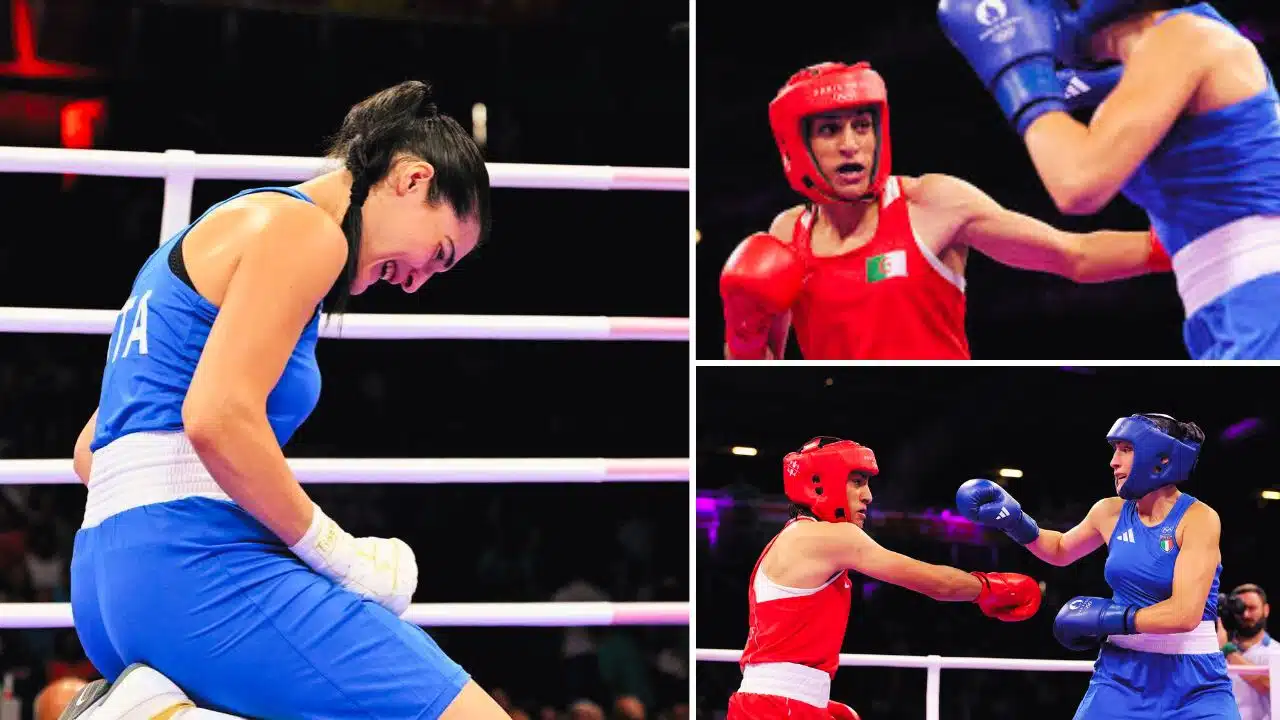An Olympic women’s boxing match between Algerian boxer Imane Khelif and Italian boxer Angela Carini has become the center of misinformation and controversy. The match, which saw Khelif winning in just 46 seconds, led to a flurry of false claims about Khelif’s gender identity. This incident is now being used by conservatives to promote their anti-trans agenda, despite the facts.
The Match Incident
On Thursday, Khelif faced Carini in what was supposed to be an intense boxing match. However, the fight took an unexpected turn when Carini abruptly pulled out after just 46 seconds. Carini, visibly upset and in tears, explained that she withdrew due to the severity of Khelif’s punches. “I put an end to the match because after the second blow,” Carini said, “I felt a strong pain in my nose.” Her reaction and refusal to shake Khelif’s hand sparked immediate scrutiny and misinformation about Khelif’s gender identity.
Misinformation and Reactions
False claims that Khelif is a trans person or a man pretending to be a woman quickly spread. These claims were fueled by reports that Khelif had been disqualified from a 2023 International Boxing Association (IBA) event and comments from the IBA president suggesting her elimination was due to failing a hormone test. Prominent anti-trans figures like Harry Potter author J.K. Rowling, US Republican vice presidential nominee J.D. Vance, and conservative Italian Prime Minister Giorgia Meloni amplified these false claims, stirring up anger and controversy on the right despite Khelif being a cisgender woman.
Clarification from the IOC
In response to the growing misinformation, the International Olympic Committee (IOC) clarified that Khelif is indeed a cisgender woman and eligible to compete. IOC spokesperson Mark Adams told reporters, “The question you have to ask yourself is, are these athletes women? The answer is yes.” Adams emphasized that there are no transgender athletes at this year’s Olympics competing outside of the sex they were assigned at birth, though IOC rules do allow for their inclusion if they meet certain eligibility criteria.
Background on Khelif and Carini
Both Khelif and Carini had previously competed in the Tokyo Olympics. In Tokyo, Carini was eliminated in her first bout, while Khelif was eliminated in her second bout. Their match this week at the 2024 Olympics started with both fighters trading blows. After Carini paused to adjust her headgear, Khelif went on the offensive, landing a solid punch to Carini’s face. Rather than continue, Carini, pulling at her nose, relinquished the competition completely, which is atypical for a boxing match that usually includes three rounds of combat. As the referee prepared to call the match, Carini told her team, “It’s not fair.” She then dropped to her knees and refused any attempts at a handshake or other customary gestures of sportsmanship from Khelif.
The 2023 IBA Incident
The controversy surrounding Khelif is partly rooted in events from 2023. That year, Khelif and Taiwanese boxer Lin Yu-ting were disqualified from the boxing world championships held by the IBA in New Delhi, India. Reports suggested their disqualification was due to failing a test and having elevated testosterone levels. The IBA president reportedly told a Russian outlet that both Khelif and Lin had “XY chromosomes” — a chromosomal composition typically associated with those assigned male at birth. However, the IBA did not disclose any documentation or reveal what specific tests were conducted, leading to confusion and speculation. Additionally, the timing of Khelif’s disqualification, which occurred after she had already beaten a Russian boxer, raised further questions.
Recently, the IBA released a statement claiming that Khelif and Lin “did not undergo a testosterone examination but were subject to a separate and recognized test, whereby the specifics remain confidential.” The statement also mentioned that the test “conclusively indicated that both athletes have competitive advantages over other female competitors.” Both Khelif and Lin had also competed in the 2022 world championships, administered by the IBA, without issue.
IOC’s Stance and the Role of Race
The IOC heavily criticized the IBA’s 2023 decision, deeming it “arbitrary” and not transparent. Both athletes had competed in the 2021 Olympics without issue, neither medaling, and both losing to multiple female opponents. The IOC has declared the IBA an unreliable steward of global boxing due to concerns over its financial dealings, leadership, and allegations of match-fixing. The IOC’s rules do not include sex testing, which was abandoned in 2000 due to questionable and flawed science. The committee still disqualifies some athletes with Differences of Sexual Development (DSD), a group of rare conditions involving genes, hormones, and reproductive organs, based on factors like safety and fairness.
Beyond gender, racial dynamics also play a role in the perceptions of this match. Female athletes of color, particularly those of African and African American descent, have long been accused of being men when they’ve beaten white women in competition. This has happened most notably with tennis phenom Serena Williams and track star Caster Semenya, both of whom endured tropes that cast Black women as more masculine and threatening.
Carini’s Apology and Moving Forward
Following the attention on this week’s match, Carini has expressed a desire to apologize to Khelif. “If the IOC said she can fight, I respect that decision,” she said. Other boxers have also expressed their lack of concern about competing against Khelif. “I don’t care about the press story and social media,” said Anna Luca Hamori, a boxer from Hungary who will compete against Khelif next. Lin’s first match proceeded as planned, and like Khelif, she won.
Conservative Agenda and Misinformation
Despite the facts of Khelif’s Olympic journey, the false narrative surrounding her win has been used by conservatives to promote their anti-trans rhetoric. J.K. Rowling and other prominent anti-trans figures like Tesla CEO Elon Musk spread lies and cited the boxing match as an example of why they believe it is important to support stark gender binaries. “We object because we saw a male punching a female,” Rowling wrote in a post on X (formerly Twitter).
US conservatives also misattributed and questioned Khelif’s gender identity to weaponize their anti-trans rhetoric. Vance wrongly linked Democratic Vice President Kamala Harris to the international boxing match in a nonsensical post, writing on X, “This is where Kamala Harris’s ideas about gender lead: to a grown man pummeling a woman in a boxing match.” Former President Donald Trump similarly wrote on Truth Social that he would “keep men out of women’s sports.”
As Vox’s Nicole Narea and Fabiola Cineas have explained, this sort of rhetoric from GOP leaders is tied to an explosion of anti-trans legislation in states across the country. These laws focus on bathroom access, women’s sports, and gender-affirming care for minors, framing trans people as a threat and stoking fear among GOP voters. Women’s sports have become a particular focus for the GOP, as they see it as a way to activate religious Republicans, including Evangelical voters, and potentially resonate with more moderate women.
Evangelical Perspective and Legislative Impact
“Trans issues in particular challenge biblical concepts of gender,” Sophie Bjork-James, a Vanderbilt University anthropologist who studies the religious right, previously told Vox. “Evangelicals tend to believe that men and women have very different qualities that are innate in us. I think there’s a huge interest in maintaining a gender binary because it really does provide a foundation for their theology and their everyday lives.”
Republican state legislatures, including those in Tennessee and Texas, have successfully passed bills limiting athletes to participating in sports for the sex they were assigned at birth. The attacks on Khelif are just the latest manifestation of these ideas.
The controversy surrounding Imane Khelif’s boxing match highlights the complex intersection of sports, misinformation, and political agendas. Despite the misinformation, the IOC has affirmed Khelif’s eligibility to compete, and the focus now shifts to how these narratives are used to influence broader societal views on gender and sports. As the debate continues, it remains crucial to rely on verified information and credible sources to navigate the complexities of this issue.





































